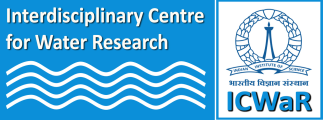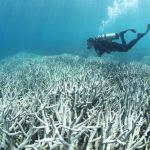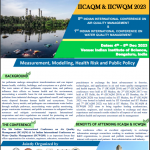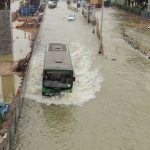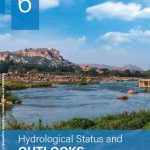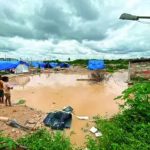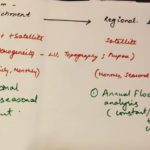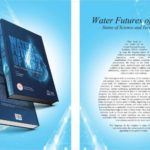Major findings from IPCC Water Chapter on Water Related Adaptations and their Effectiveness in reducing risks
Name of the Speaker: Dr. Aditi Mukherji
Title of the Seminar: Major findings from IPCC Water Chapter on Water Related Adaptations and their Effectiveness in reducing risks
Date and Time: 28 March 2022 (Monday), 4:00pm
Online Platform: MS Teams [link to the video of the seminar]
About the Speaker: Dr. Aditi Mukherji is a Principal Researcher and leads the Research Group on Climate Change Adaptation and Resilience (CCAR) at the International Water Management Institute. Before this, she led the Water and Air Theme at the International Centre for Integrated Mountain Development (ICIMOD) in Nepal. She has over 20 years of experience working on policies and institutions of water resources management with a special focus on water-energy-food nexus. Her areas of specialization are groundwater governance, energy-irrigation nexus, climate change adaptation and community management of water resources. She has worked in South Asia including the Hindu Kush Himalayan region, Nile basin and in Central Asia. She is currently a part of the 6th Assessment Report (AR6) team of the Intergovernmental Panel on Climate Change (IPCC) and is the Coordinating Lead Author (CLA) of the Water Chapter in the Working Group II on Adaptation and Vulnerability and a member of Core Writing Team for the IPCC’s AR6 Synthesis Report. Aditi is a human geographer by training and has a PhD from Cambridge University, United Kingdom.
Abstract: IPCC Working Group II formally launched its report on Impacts, Adaptation and Vulnerability on 28th of February, 2022. The writing of this report involved over 270 scientists who spent last 3 years going through literature and assessing the impact of climate change on human and natural systems, and role of adaptation in alleviating some of these impacts. Water chapter is one among 18 chapters in this report. This chapter reiterates findings from WGI report about intensification of water cycle, and shows how every sector of the economy (agriculture, energy, urban etc.) and ecosystems have been affected by this climate induced intensification of water cycle. Majority of world’s population, especially those involved in climate sensitive occupations like agriculture are feeling impacts of climate change through changes in the water cycle, such as through extreme precipitation, melting of glaciers, floods and droughts. The chapter also finds that water is also a part of solution. A large majority of the adaptation options are in response to water related hazards, or adaptation response itself is water related, e.g., irrigation, soil moisture conservation, water storage, rainwater harvesting etc. Many of these water adaptation responses have several benefits, including instances of climate risk reduction. However, effectiveness of these adaptation measures in reducing climate risks goes down substantially at higher levels of global warming, thereby emphasizing the importance of mitigation along with adaptation.
Date/Time
Date(s) - 28/03/2022
4:00 pm - 5:00 pm
